Ikea-inspired book empowers dementia caregivers through design
Titled Hack Care, the project by Singapore's Lien Foundation features simple adjustments that can help people living with dementia have a better experience in their home
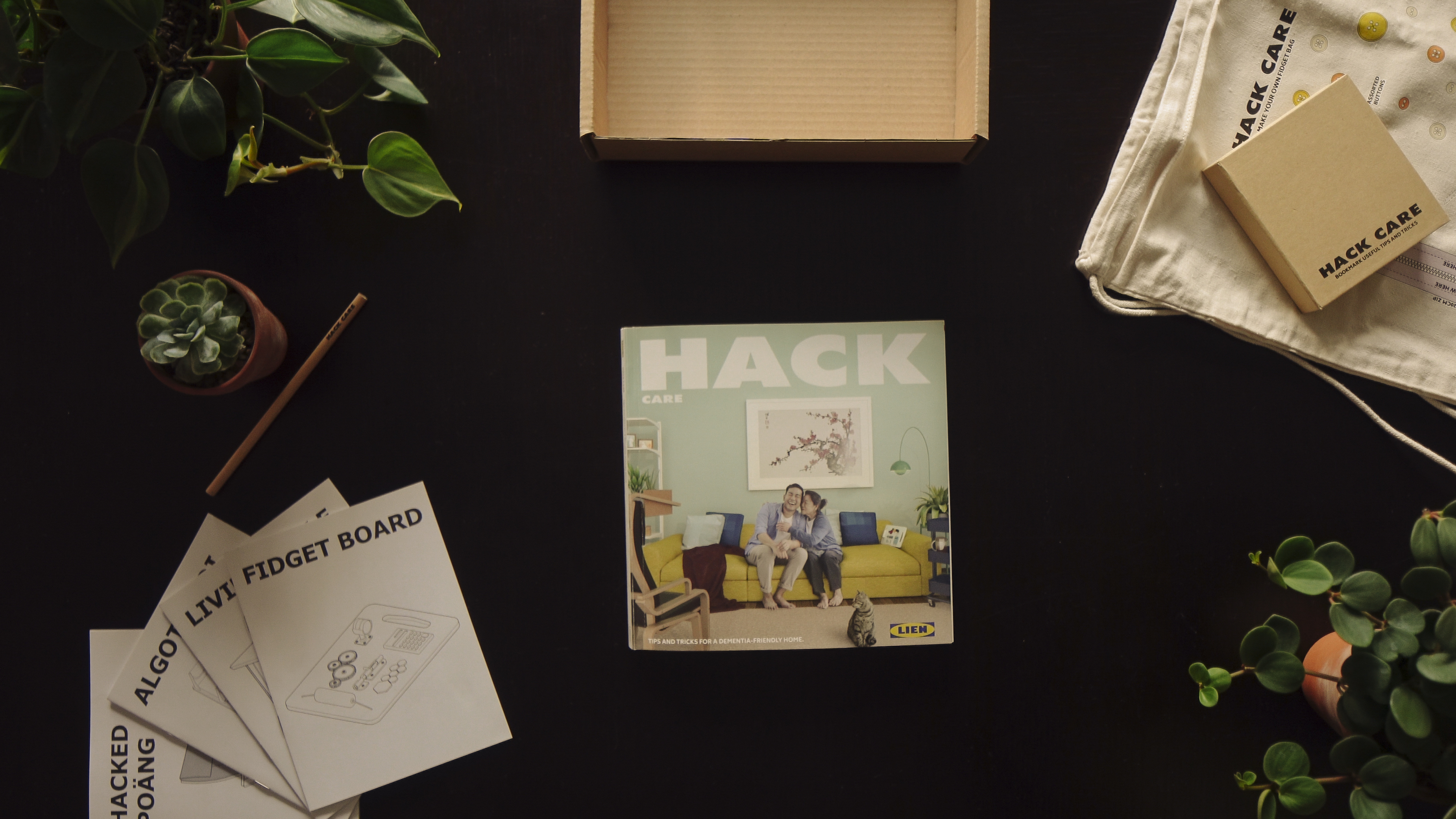
Singapore based designers Lanzavecchia + Wai and Lekker Architects have joined forces to create Hack Care, a project that builds on design’s potential to heal and improve lives. Unveiled in September during World Alzheimer’s Month, Hack Care serves both as a reminder of the struggles of people living with Dementia, as well as a practical tool to empower those affected by the condition and their families.
The project was initiated by the Lien Foundation, a Singaporean philanthropic organization whose mission is to offer a radical approach to common social issues. ‘We view innovation as a permanent state of exploration, and embed design into our work in early childhood development, eldercare and end-of-life issues, as a key driver of value creation,’ reads their mission statement. The foundation put together a team offering professional and personal caregiving insights, to inform the project, which combined design thinking and scientific research with the aim of providing a person-centred care plan.
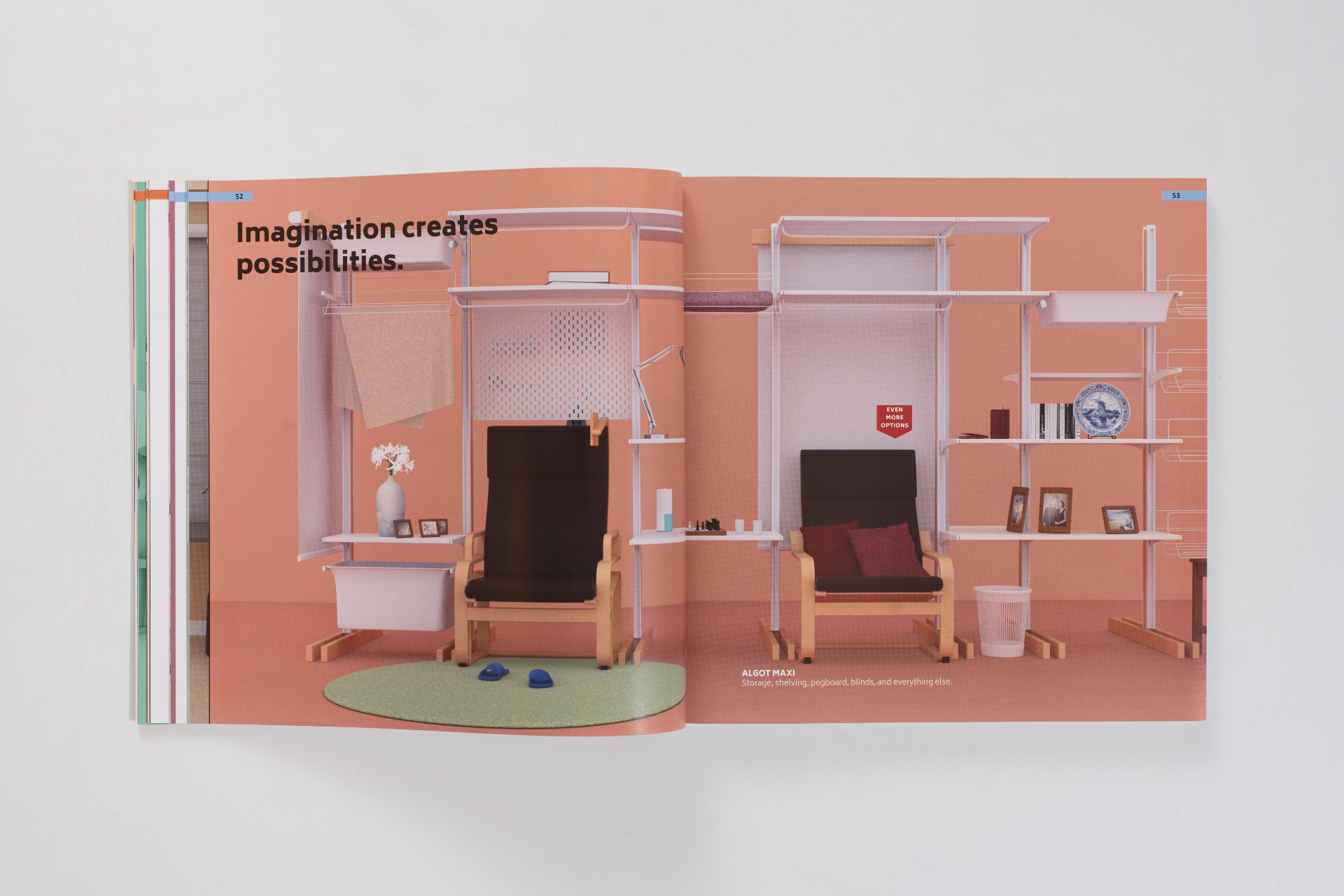
Hack Care features a series of ideas, suggestions and tips to re-design a home suitable for people with dementia using everyday furniture and tools
‘Living with dementia is daunting, and our everyday home environments do not always anticipate or meet the unique needs of people battling cognitive and physical frailty,’ said Lee Poh Wah, CEO of the Lien Foundation. ‘These challenges can be mitigated with good design that is functional, inspirational and accessible, and shaped by the shared experiences of caregivers who have been on a similar journey.’
Hack Care is an independent project not officially linked with IKEA, but the Swedish giant’s approach and visual language offered a practical and familiar concept for the team to build on. The project is based on the popular Ikea Hacks concept, a global movement of people repurposing the company’s furniture with customised designs.
The 240-page book is styled like a classic IKEA catalogue depicting traditional domestic interiors, featuring over 50 simple tricks to make furniture more comfortable or approachable for patients living at home with dementia, and for their carers. It is broken down into ‘micro-worlds': domestic spaces dedicated to rituals and daily habits, from meals to personal care. ‘Daily rituals like bathing and dressing can become opportunities to shape the living environment to improve the wellbeing of the person with dementia,’ reads an introduction to the project.
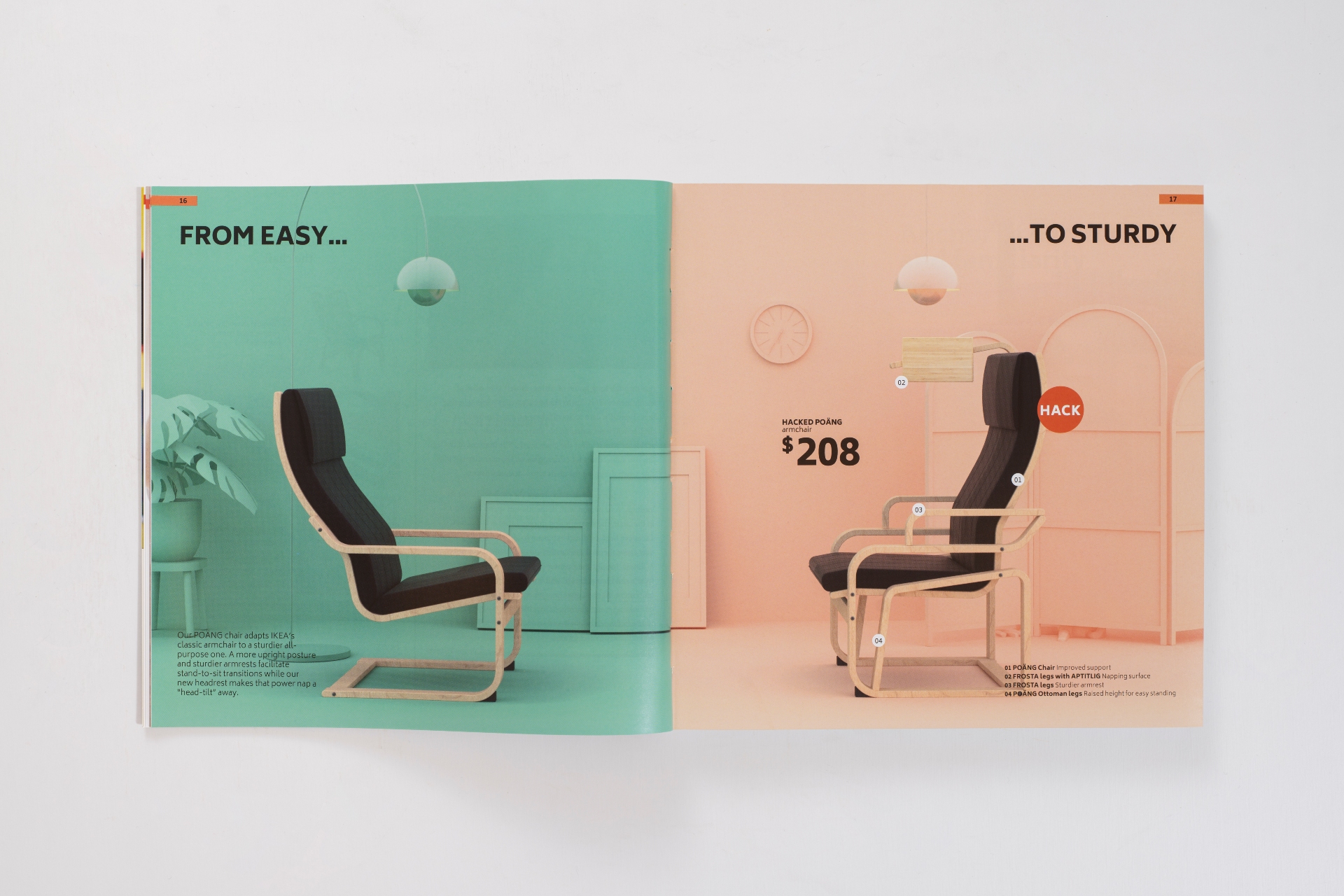
One of the book's hacks adapts IKEA's popular Poang chair into a sturdy armchair with additional headrest and adjusted posture
Lekker Architects’ Director, Ong Ker-Shing (a long-term collaboration of the Foundation) drew from her personal experiences to work on the project, having witnessed her father’s fight with dementia for over a decade. ‘At home, we observed how my father was incredibly responsive to changes in his environment, and more importantly, that the manipulation of this environment was really in the hands of us, his family, and not so much in the hands of architects and designers,’ she said. She noticed that the experience of hacking living spaces was common for caregivers, and her work on the book features both practical insights, provocations and tips for ‘non designers to think like designers’.
Singaporean-Italian duo Francesca Lanzavecchia and Hunn Wai had already explored the topic in 2012, with a collection titled No Country for Old Men that included ‘walking aids for living' (wheeled walking canes that doubled as coffee tables), a magnifying lamp (which was shortlisted for a Wallpaper* Design Award) and a chair that tilted to help its user get up. The research and design insight from that project informed this new endeavour. Hack Care's practical solutions include creating a carer’s corner within the home for administrative documents and medication, or limit wardrobe contents with pre-arranged hangers to let people dress independently. The book also suggests small changes to furniture that can make it more comfortable and practical, or how the use of colour and plants in a space can help navigating an environment and feel more at ease.
‘Design holds great promise to solve the most pressing challenges of our time,’ continues Lee Poh Wah. ‘We hope to engender a new breed of designers as catalysts for change in our ecosystem of partners and projects.’
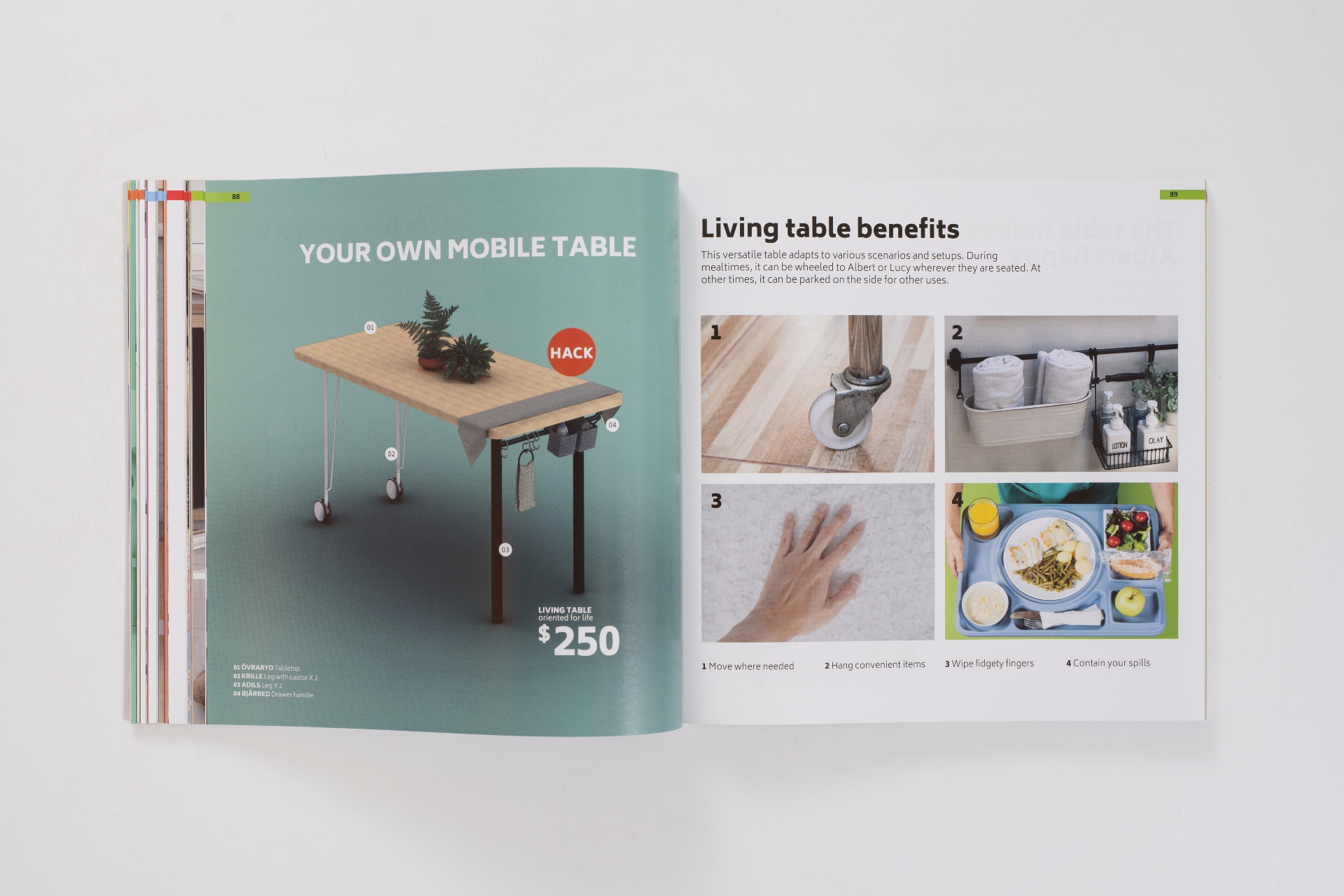
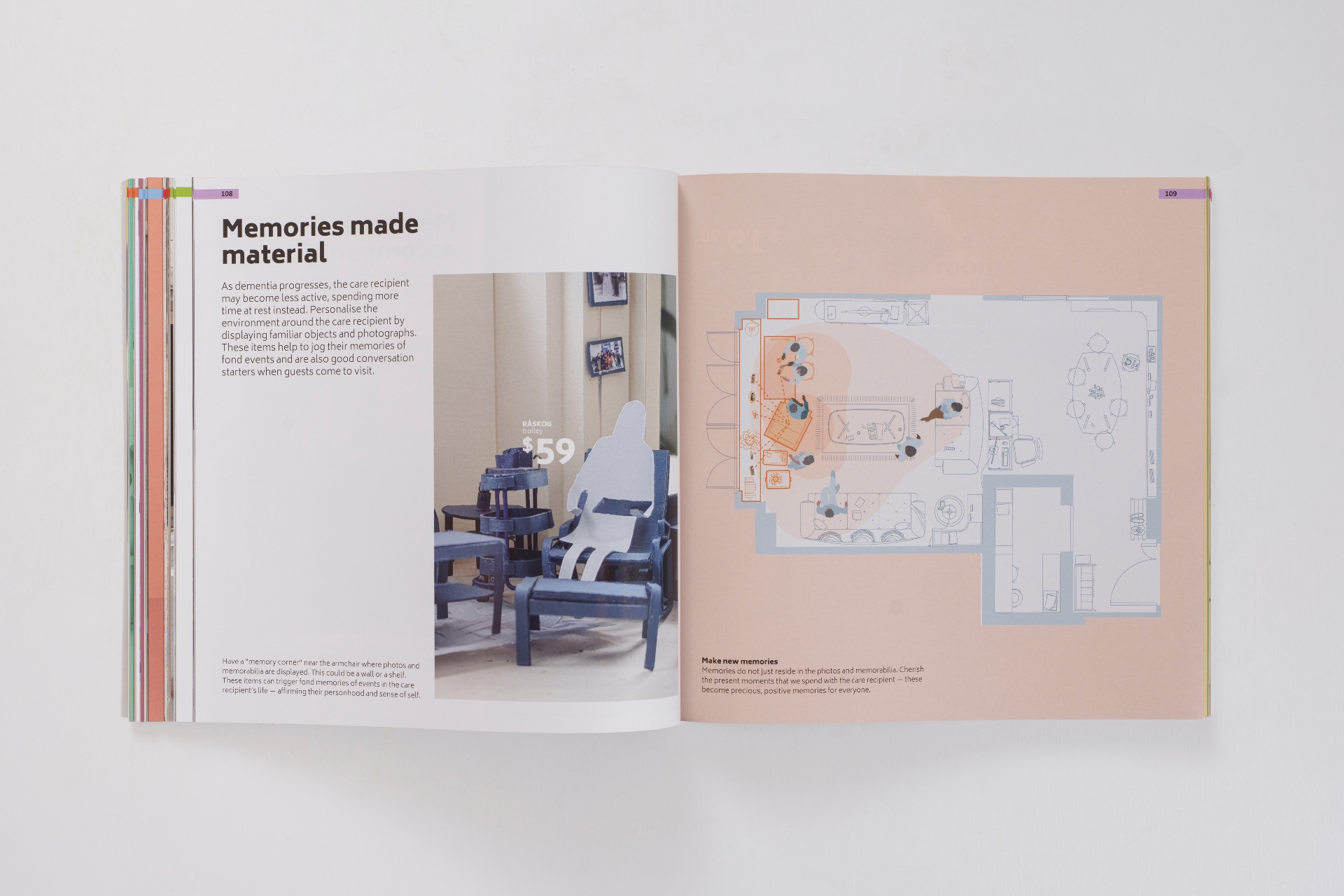
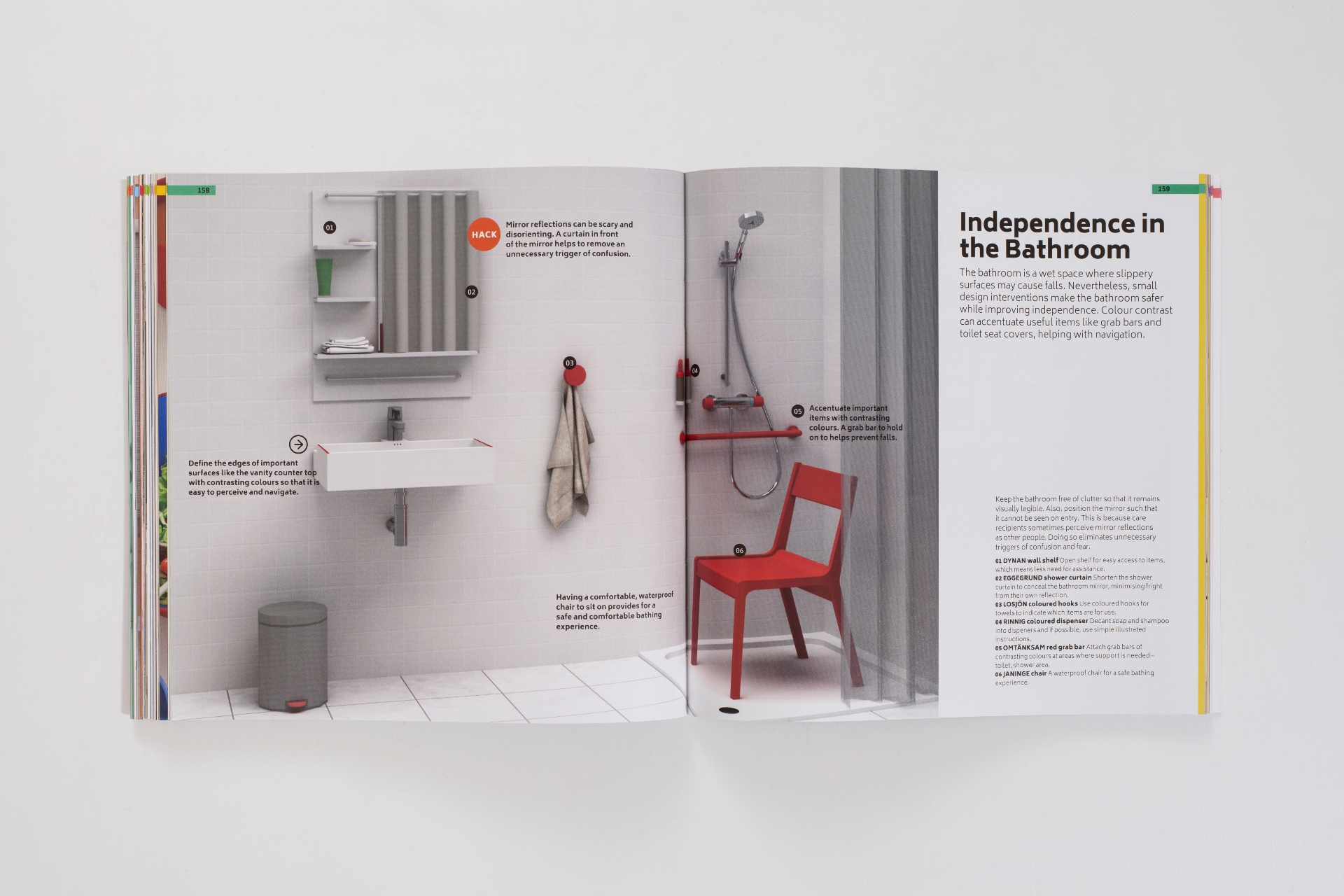
INFORMATION
Receive our daily digest of inspiration, escapism and design stories from around the world direct to your inbox.
Rosa Bertoli was born in Udine, Italy, and now lives in London. Since 2014, she has been the Design Editor of Wallpaper*, where she oversees design content for the print and online editions, as well as special editorial projects. Through her role at Wallpaper*, she has written extensively about all areas of design. Rosa has been speaker and moderator for various design talks and conferences including London Craft Week, Maison & Objet, The Italian Cultural Institute (London), Clippings, Zaha Hadid Design, Kartell and Frieze Art Fair. Rosa has been on judging panels for the Chart Architecture Award, the Dutch Design Awards and the DesignGuild Marks. She has written for numerous English and Italian language publications, and worked as a content and communication consultant for fashion and design brands.